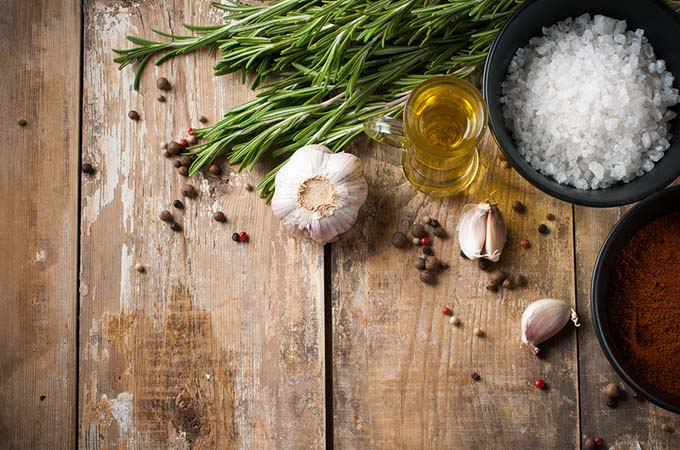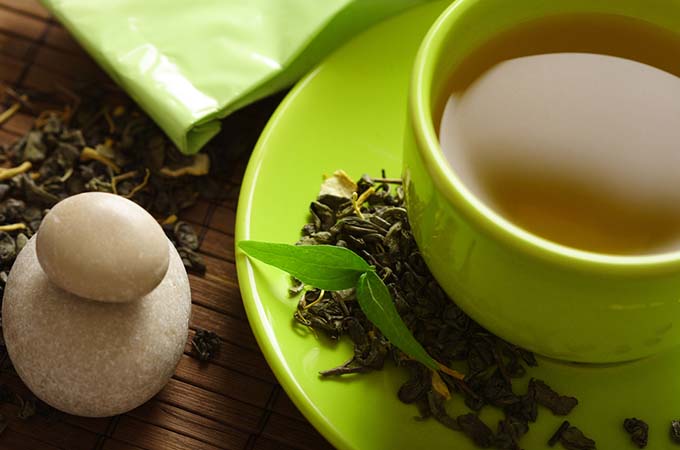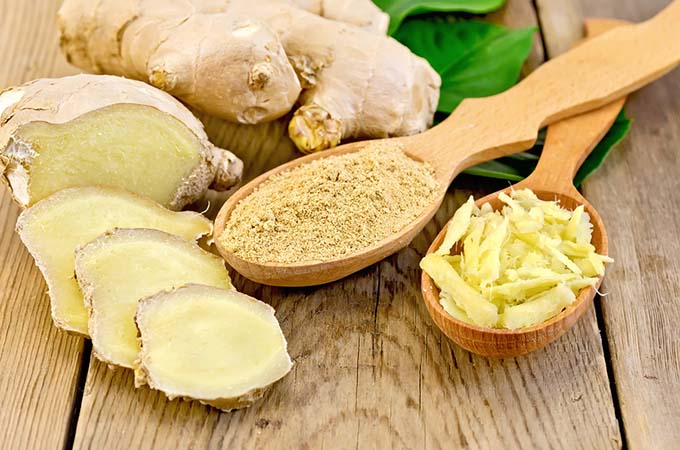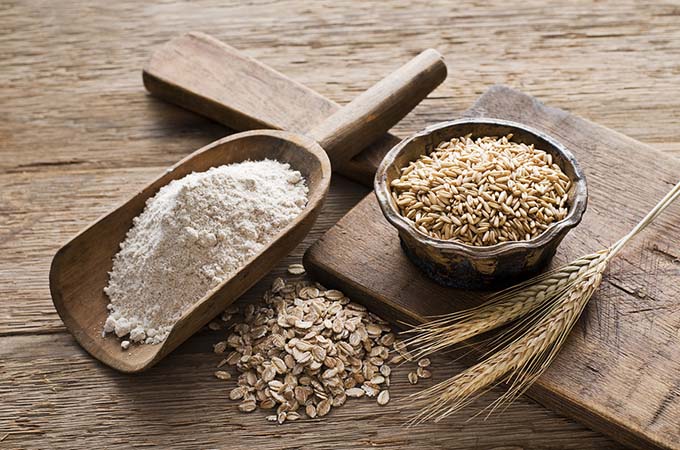
Most adults get two to four colds every year, usually between September and May. While there is no cure for the common cold, there are certain foods that can help prevent colds in the first place and improve your symptoms once they set in.
These nine powerhouse foods can help prevent the common cold or, if it’s too late for that, help reduce the duration of the virus and ease some of the misery it brings.
1. Fish
Trying to avoid getting sick? One of the best ways to do so is to include plenty of omega-3 fatty acids in your diet.
Omega-3 fatty acids help reduce inflammation so that your body can fend off the common cold and other illnesses more easily.
Omega-3 also helps naturally reduce anxiety, which can prevent your body from fighting off illness, even if you’re fit and healthy. Tuna, salmon and mackerel are all very high in omega-3 acids, and have numerous other health benefits as well.
You can grill fresh fish outdoors to avoid having the smell permeate your house or apartment. Rub on a little olive oil to prevent the fish from sticking to the grill grates and squeeze lemon juice over the filets just before cooking to enhance the flavor. There are also many delicious marinades and grill rubs available for fish.
If you just can’t bring yourself to eat fresh fish, use canned tuna or salmon to concoct a healthy spread for crackers or sandwiches. Consider breading mackerel and making fish tacos that include black beans, slaw and fresh tomatoes for an extra punch of healthy antioxidants.
A recent study showed that adults who took fish oil supplements for three months had fewer colds and lower inflammation throughout their bodies. However, replacing fish entirely with fish oil isn’t recommended, as the oil doesn’t provide the other nutrients found in fresh, canned and frozen fish.

2. Garlic
Whether you’re trying to take preventive measures or alleviate symptoms of a cold, fresh, raw garlic will help your body do the job.
Garlic contains a sulfuric compound called allicin, which produces heavy-duty antioxidants when it decomposes in your body.
These antioxidants are incredibly effective for reducing the risk of contracting a cold, and they also help alleviate symptoms once you’ve become infected. Garlic is also a natural decongestant, and can help you breathe easier.
Garlic is a rich source of Vitamin C, which is another potent antioxidant. Although Vitamin C is no longer the go-to nutrient for fighting the common cold, it can shorten the duration of your symptoms if consumed at the first sign of infection.
Fresh garlic, eaten raw, is the best way to take advantage of the antioxidants they contain. Just make sure that the garlic is in good shape! Check to make sure there are no soft spots before you purchase fresh garlic bulbs, and avoid purchasing garlic that has green sprouts protruding from the bulb.
Freshly diced garlic makes a flavorful additive to pasta sauces. Add the garlic just before serving to keep it as raw as possible. You can also add it to casseroles, soups and stir fry dishes.
If you can’t stand garlic, or if you’re concerned about your breath, consider a garlic supplement. However, as with most supplements, garlic pills shouldn’t take the place of a regular dose of fresh, raw garlic.

3. Green Tea
Green tea is chock full of antioxidants, including those in the group known as catechins, which have properties that are effective at fighting colds and flu.
Catechins boost your overall immunity to help protect you against these viruses and shorten their duration when you do become infected.
In fact, a study showed that adults who took catechin capsules for five months showed a 75 percent decrease in contracting the flu and the common cold.
It’s no secret that it’s important to stay hydrated when you’re feeling under the weather, and there’s no better way to do so than sipping hot green tea.
The steam from your cup of tea moisturizes your nasal passages to help clear them so you can breathe easier, and the warm liquid soothes your throat, especially if you add a little lemon juice and a tablespoon of honey. If you don’t like honey, try using agave nectar to sweeten your tea.
But don’t wait until you’re already sick to start your green tea regimen. Green tea is also known to protect against cancer and rev up your metabolism. You can drink it sweet or straight, iced or hot. Green tea supplements are available as well, but if you start the habit of reaching for green tea instead of soda or coffee, you’ll be that much closer to overall excellent health.

4. Ginger
Ginger is great for everyday cooking, but the root has anti-inflammatory properties that can come in particularly handy during a cold.
A member of the rhizome family, ginger has a number of antiviral compounds, as well as compounds that help relieve pain and antioxidants to help improve your immune system.
Ginger is also a powerful antihistamine, antiseptic and decongestant, works well to help reduce a fever, and it’s a mild sedative that can help you get the rest you need during a cold.
To make a potent ginger concoction, peel a large piece of ginger and slice it. Smash the ginger pieces with the edge of a knife to release the juices, and boil them for 20 minutes in a small pot of water.
Peel an orange and add the pieces of the peel to the water and boil for another 10 minutes. Strain it, add honey to taste and sip a cup of the hot liquid several times a day. Ginger is also an excellent addition to stir fry dishes – simply grate a piece of fresh ginger and toss it in the dish to enhance the Asian flavor.
While ginger is considered a superfood, use it cautiously if you are on blood thinners, as ginger has anticoagulation properties. It should also be avoided if you have gallstones, because it can increase the release of bile.

5. Soup
Everyone knows that chicken noodle soup, affectionately called nature’s penicillin, is the universal meal for anyone fighting a cold or flu.
But most people don’t realize that chicken soup is more than a comfort food whose down-home wholesomeness and comforting aroma makes you feel warm and sleepy.
Chicken soup attacks your cold on three fronts. First, it has anti-inflammatory properties that inhibit the immune system cells that cause inflammation in the body. Secondly, it helps speed up the movement of the mucous that makes a cold so miserable in the first place.
Lastly, chicken soup is a hot liquid, and hot liquids help relieve nasal congestion, soothe inflamed membranes in your throat and nose, and help prevent dehydration, which can considerably worsen symptoms.
Add lots of vegetables to your chicken soup to provide more nutrients and antioxidants to help shorten the duration of your cold. Carrots, celery, peppers, tomatoes and kale added to your soup will pack an antioxidant punch and provide vitamins and minerals that will have you back on your feet in no time.
Make sure the soup is hot, and hold your face over the bowl as you eat to allow the steam to help soothe your nasal passages and throat. Avoid creamy soups when you are under the weather, though – dairy products can make congestion worse.

6. Citrus Fruits
Vitamin C used to be the main prescription for shortening the duration of the common cold.
However, research shows that Vitamin C doesn’t do much to relieve your cold once it has taken hold.
The key to the healing properties offered by Vitamin C is to take at least 1,000 milligrams daily to strengthen your immune system before you get sick, and take it in larger doses (2,000 milligrams a day) as soon as symptoms appear.
Once the symptoms are prevalent, vitamin C won’t do much to “cure” your cold, but there is certainly no harm in increasing your dose for the duration of your illness.
To get a quick dose of Vitamin C, as well as other nutrients and fiber, eat a piece of citrus fruit daily. Whether it’s a glass of orange juice, a grapefruit for breakfast or lemons in your tea, ensuring that you receive plenty of vitamin C in your daily diet helps prevent illness, reduce the duration of the common cold and relieve some of its symptoms.
Green peppers, potatoes and other fruits are also rich in Vitamin C, so don’t stress if citrus doesn’t appeal to you. In addition to getting Vitamin C from your diet, consider taking a 500 mg supplement two or three times a day. What doesn’t get used by your body is flushed from your system, so there’s no need to worry about getting too much Vitamin C.

7. Skinless Turkey Breast
At least one source of lean protein in your diet is vital in when you’re trying to remain health-conscious.
Skinless turkey is one of the leanest meats available, and while the lean protein offered by turkey is essential for building strong muscles, it’s also critical for building antibodies that fight infection.
Turkey is highly versatile. A roasted turkey will provide enough meat for quite a few meals, from Turkey Delight to sandwiches, soups, stir fries and tacos. Ground turkey makes excellent meatballs and tasty, lean burgers.
Add spinach and feta to the patties before you cook them to add moisture, texture and flavor. Try grilling turkey breasts after marinating them in a blend of olive oil, water and apple cider vinegar for a tangy flavor and moist meat.
In addition to turkey, lean protein can also be found in fish and skinless chicken. If you’re a big meat eater, try substituting red meat with lean white meat for all but one meal a week to lower your risk of heart disease and high cholesterol, as well as to reduce the number of calories you eat.
If you don’t eat meat, you can get your essential lean proteins from nuts, dairy products and beans.

8. Dark Chocolate
Over the years, dark chocolate has become highly lauded for its health benefits.
Of course, it is also a comfort food that can perk you up when you are dealing with a cold or the flu.
Pure cocoa has more antioxidants in the polyphenol family than most berries contain, and these powerful nutrients to strengthen your immune system to help you avoid catching a cold.
If you get a cold anyway, they can help shorten the duration and alleviate symptoms.
Dark chocolate also contains zinc, which is most effective for fighting colds when taken within twenty-four hours of the onset of symptoms. Dark chocolate is also good for your heart, brain, teeth and is high in copper, magnesium, iron and potassium.
Unfortunately, cocoa is one of those foods whose health benefits are often overshadowed by added sugar and saturated fat, so moderation is the key when enjoying dark chocolate. Aim to consume a quarter ounce of dark chocolate every day to get the best health benefits.
When shopping for dark chocolate, choose a bar with a cocoa content of at least 70 percent. Avoid bars that have added dairy, which adds saturated fat to the chocolate. If you’re not a big fan of dark chocolate, try experimenting with different flavors, such as dark chocolate sprinkled with sea salt, infused with natural mint or sprinkled with nuts. Let the chocolate melt slowly in your mouth to bring out the natural sweetness and reduce the bitterness.

9. Whole-grain Cereals
A bowl of oats for breakfast or a serving of shredded wheat or other whole-grain cereal can provide the necessary fiber for your daily diet and improve your overall health.
More importantly, though, whole grain cereals provide the nutrients necessary to prevent viral infections, including zinc, selenium and beta-glucan, which has immune boosting properties to help prevent infections of the upper respiratory tract specifically.
As an added bonus, several of the key nutrients in whole-grain cereals also reduce cholesterol and prevent other infections.
Check the ingredients list for sugar and high-fructose corn syrup when choosing a cereal. It’s not difficult to add flavor to an unsweetened cereal by adding fresh fruit, berries, honey or agave nectar. Adding naturally sweet foods helps you control your calorie intake and reduce your consumption of refined sugars.
Oatmeal is the most beneficial whole grain cereal for your health. Choose steel-cut oats whenever possible, because they have more fiber than rolled oats or instant oats. Avoid instant oats altogether. They may be more convenient, but they typically have a lot of added sugar and are more highly processed than steel-cut and rolled oats.
Sprinkle your oatmeal with fresh berries, a spoonful of nut butter or some dark chocolate chips for an antioxidant punch that will help you get back to good health more quickly.

